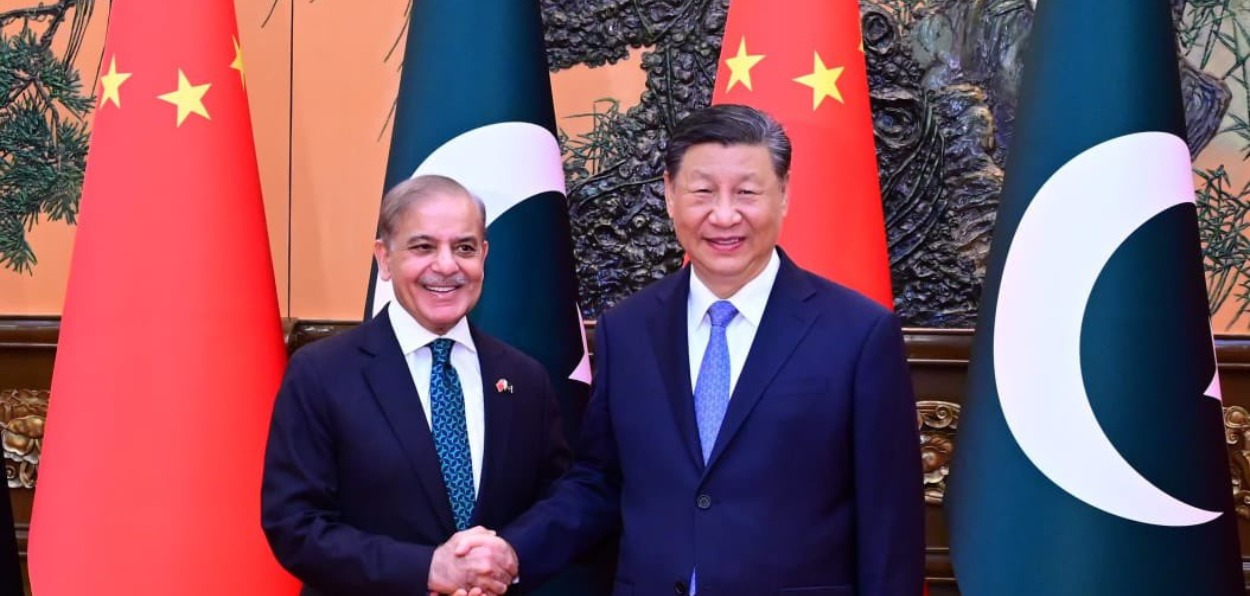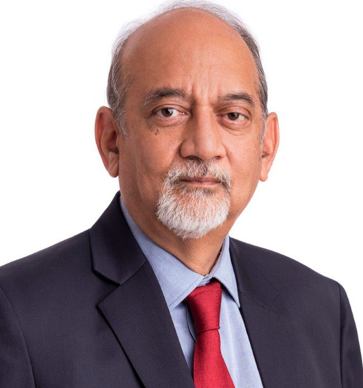
 D. P. Srivastava
D. P. SrivastavaPakistan Prime Minister Shahbaz Sharif visited China from the 4th to the 8th of June. It has become customary for the Pakistani Prime Minister to visit that country soon after assuming office. The timing on the eve of the budget session would raise eyebrows in any other country. Pakistan follows the July to June budget cycle. The budget was postponed from 7th June to 12th June to allow for the 5-day visit. What explains the urgency? Pakistan is in the midst of its worst-ever financial crisis. China is Pakistan’s biggest bilateral lender. Its help is needed both for balancing the budget and tying up the next IMF loan.
Sharif was accompanied by all the key Cabinet Ministers, including Finance, Foreign Affairs, Defense, and Trade. Interestingly, the delegation also included the Army Chief General Asim Munir. His inclusion was justified on the ground that he is a member of the Special Investment Promotion Council (SIFC). This body was set up during Shahbaz Sharif’s first term in office to attract foreign investment. The inclusion of the Army Chief in SIFC signified that the military has institutionalized its role in economic governance.
There may be other reasons also for the inclusion of the Army Chief in the Prime Minister’s delegation. While Pakistan seeks financial aid, the quid pro quo for China lies in the strategic domain. Pakistan’s sinking economy does not present an attractive investment for foreign investors. Pakistan, however, offers a chance to constrain India’s rise. It is happy to play this role. Military cooperation is the essence of the China-Pakistan relationship.
China-Pakistan Economic Corridor (CPEC) is a misnomer. Most of the Chinese investment has gone into projects which have very little relevance in the civilian domain. The China-Pakistan joint statement issued at the end of the visit specifically mentioned four projects - Mainline 1 (ML-1), Gwadar, the re-alignment of Karakoram Highway, and the upgradation of Khunjareb - Sost Pass to make it passable all year long. Mainline 1 is a proposed railway corridor linking Karachi, Lahore, and Peshawar. Gwadar port is undergoing development with the construction of a new international airport. Karakoram Highway and Khunjareb-Ssost pass are in so-called Gilgit-Baltistan, which has been under Pakistan’s illegal occupation since 1947. Road building program in the sparsely populated area bordering J&K is essentially part of military build-up.
Pak-China business meet in Beijing
Gwadar carries 1.5 million tons of cargo, which is less than 2 % of Pakistan’s sea-borne trade. As against this, Karachi port carries 65 million tons or 60 % of Pakistan’s trade. Gwadar is far from major population centers. For both these reasons, it does not quite serve a commercial purpose. Chinese investment to the tune of more than $ 900 million in the port can only be justified in terms of the strategic objective of having a naval presence close to the oil-bearing region in the Middle East. The port is located astride sea lanes carrying most of Indian crude supplies.
Media briefings before Shahbaz Sharif’s departure suggested that the visit would help usher in the second phase of CPEC, which is stalled. Instead of an investment of $ 46 billion announced initially, the actual investment has been around $ 25 billion. Except for the four projects mentioned in previous paragraphs, no new project has been announced. The Chinese reluctance to make fresh commitments may be partly linked to China’s internal difficulties; the country has a problem of massive domestic debt and economic slowdown. It also reflects a reluctance to increase investment in a country plagued by terrorism and economic difficulties. There have been attacks on Chinese personnel in areas ranging from Karachi to Khyber-Pakhtunkhwa. The joint statement includes a paragraph about security for Chinese personnel in Pakistan.
Pakistan hopes to finalize a $ 6 billion aid package from the IMF with a repayment period of 3-4 years. IMF is insisting upon ‘prior conditions’, which include a commitment that China roll over debt repayment. IMF does not want fresh loans to pay off Pakistan’s debt to China. It wants this moratorium to be maintained till the end of the next IMF package for Pakistan.
Despite these conditions, China may not be averse to IMF’s involvement in Pakistan. It would like the IMF to share the burden of shoring up the economy of its military ally. IMF’s involvement also ensures that there is some modicum of check on the Pakistani regime’s tendency to waste resources on populist schemes. Both Imran Khan and the first regime of Shahbaz Sharif had given subsidies amid an economic crisis.
The China-Pakistan Joint Statement has a section on peace and stability in South Asia. This includes a reference to the opposition of both countries to ‘unilateral change in situation’. This is a reference deletion of article 370 by India. This is not new; identical language was there in the previous years’ statements. The absurdity of the formulation is evident from the situation on both sides of the Line of Control.
The Indian State of J&K recently underwent elections where the people voted enthusiastically. On the other side of the LOC, there has been a prolonged protest movement since last year about the exploitation of POK by Pakistan. Recently, there have been clashes in the territory between the people and the police in which a policeman and three civilians were killed and a large number of persons injured.
ALSO READ: "More India, China become global, more will be their mutual understanding quotient"
The Chinese have extorted their pound of flesh by getting Pakistani endorsement of its positions across the board - Taiwan, Xinjiang, Xizang, Hong Kong, and the South China Sea. This may complicate its position in the US, Japan, and ASEAN countries. The Joint Statement is silent about the pledge for China’s financial assistance, which is Pakistan’s most pressing need.
(A Former Ambassador to Iran and author of Forgotten Kashmir: The Other Side of the Line of Control.
